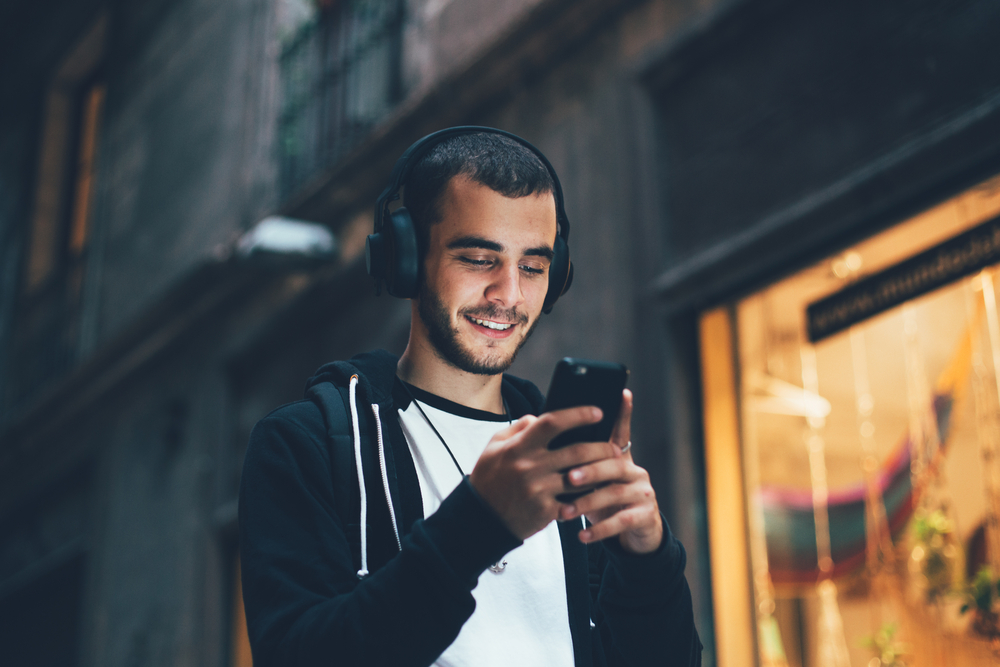
James is a music enthusiast who has mastered the art of integrating his favorite tunes into his daily life, easily shifting from Spotify at his desk to Pandora during his runs, and meticulously crafting playlists to beautifully enhance every activity, whether he’s pumping iron, cooking a meal, or immersed in a gaming session. His headphones are his constant companions, transforming his life into a completely soundtracked experience. James takes comfort and joy in the engaging world of music, but the very source of his happiness might be harming his cherished ability to hear without him realizing it.
There are safe ways to appreciate music and ways that are more hazardous to your hearing health. Unfortunately, a, any us lean towards the second approach.
How does prolonged music exposure result in hearing loss?
Extended exposure to loud music can result in a decrease in your auditory function. Hearing loss is commonly linked to growing older, but the latest studies indicate that it is mostly triggered by damage from exposure to loud noises rather than being a natural part of aging.
It also appears that younger ears are especially vulnerable to noise-related damage (they’re still forming, after all). And yet, young adults are more likely to be dismissive of the permanent dangers of high volume. So there’s an epidemic of younger people with hearing loss, thanks, in part, to widespread high-volume headphone use.
Can one listen to music without any safety issues?
Listening to music at full blast without any limits is the most dangerous approach. There is a way to enjoy to music more safely, which typically means decreasing the volume. The suggested safe volume levels are normally as follows:
- Adults should limit their device listening time to 40 hours or less and ensure the volume remains below 80 dB.
- If you’re younger than 18, 40 hours is still ok, just be sure to keep the volume at a safe level, 75 decibels or lower.
Forty hours per week translates into about five hours and forty minutes a day. Though it might appear excessive, the time can pass unexpectedly fast. Even still, most people have a fairly solid concept of monitoring time– it’s something we’re trained to do successfully from a very young age.
The more challenging part is monitoring your volume. On the majority of smart devices, computers, and televisions, volume is not measured in decibels. Its value is established utilizing a rather subjective or relative scale. Perhaps it’s 1-100. But maybe it’s 1-16. You may not have any clue what the max volume on your device is, or how close to the max you are.
Tips for effectively keeping track of your music volume
Several free noise monitoring apps can be found for both iPhone and Android devices to tackle this issue. These apps supply immediate feedback on ambient noise levels, helping users to adjust their listening volume to safe levels.
Because of this, many audiologists suggest using one of the numerous noise level monitoring applications available at no cost. These extensively accessible apps, compatible with both iOS and Android platforms, supply instant sound-level feedback on the ambient noise around you. In this way, you can monitor the decibel level of your music as it plays and make adjustments accordingly.
A volume comparison: garbage disposals and beyond
For example, a noise level of 80 decibels is similar to the sound produced by a basic garbage disposal or dishwasher – you can hear them, but they won’t blow your ears out. Identifying this volume level is important because it marks the point at which hearing loss becomes a real and substantial concern.
So, being extra cautious when exceeding this decibel limit is important. Consider limiting exposure to excessively loud music by enjoying select tracks at full volume instead of indulging in complete albums.
Recurring exposure to elevated volume levels can result in hearing complications such as tinnitus and eventual hearing loss. By remaining cognizant of when our ears venture into the danger zone, we empower ourselves to make informed choices, with the paramount goal of promoting safer listening practices.
Book an appointment for a hearing assessment
For better prioritization of your hearing health, it is advisable to contact a hearing specialist to schedule a comprehensive hearing examination. Proactive steps such as regular assessments can detect any possible issues early on, enabling timely interventions and personalized suggestions to safeguard your precious sense of hearing.
